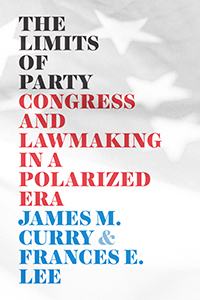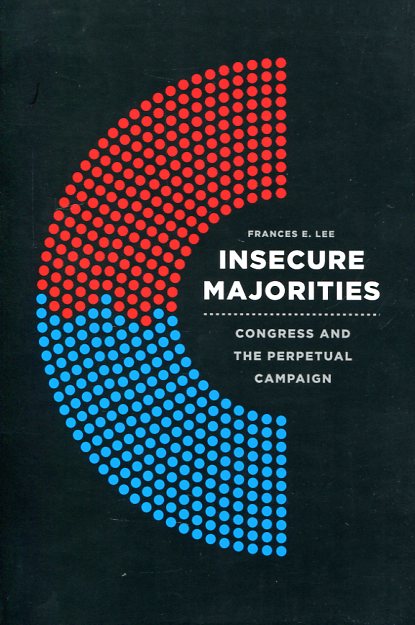The limits of party congress and lawmaking in a polarized era
- ISBN: 9780226716350
- Editorial: University of Chicago Press
- Fecha de la edición: 2020
- Lugar de la edición: Chicago. Estados Unidos de Norteamérica
- Encuadernación: Rústica
- Medidas: 23 cm
- Nº Pág.: 316
- Idiomas: Inglés

To many observers, Congress has become a deeply partisan institution where ideologically-distinct political parties do little more than engage in legislative trench warfare. A zero-sum, winner-take-all approach to congressional politics has replaced the bipartisan comity of past eras. If the parties cannot get everything they want in national policymaking, then they prefer gridlock and stalemate to compromise. Or, at least, that is the conventional wisdom.
In The Limits of Party, James M. Curry and Frances E. Lee challenge this conventional wisdom. By constructing legislative histories of congressional majority parties’ attempts to enact their policy agendas in every congress since the 1980s and by drawing on interviews with Washington insiders, the authors analyze the successes and failures of congressional parties to enact their legislative agendas.
?
Their conclusions will surprise many congressional observers: Even in our time of intense party polarization, bipartisanship remains the key to legislative success on Capitol Hill. Congressional majority parties today are neither more nor less successful at enacting their partisan agendas. They are not more likely to ram though partisan laws or become mired in stalemate. Rather, the parties continue to build bipartisan coalitions for their legislative priorities and typically compromise on their original visions for legislation in order to achieve legislative success
One / Majority Party Capacity in a Polarized Era
Two / The Persistence of Bipartisan Lawmaking
Three / Why Do Majority Parties Fail?
Four / How Do Majority Parties Succeed?
Five / Bipartisanship and the Decline of Regular Order
Six / Credit Claiming and Blaming: How Members React to Legislation in Public
Seven / Constancy and Continuities
Acknowledgments
Appendix A. Majority Party Agenda Priorities
Appendix B. Additional Quantitative Analyses
Appendix C. Notes on the Interviews







